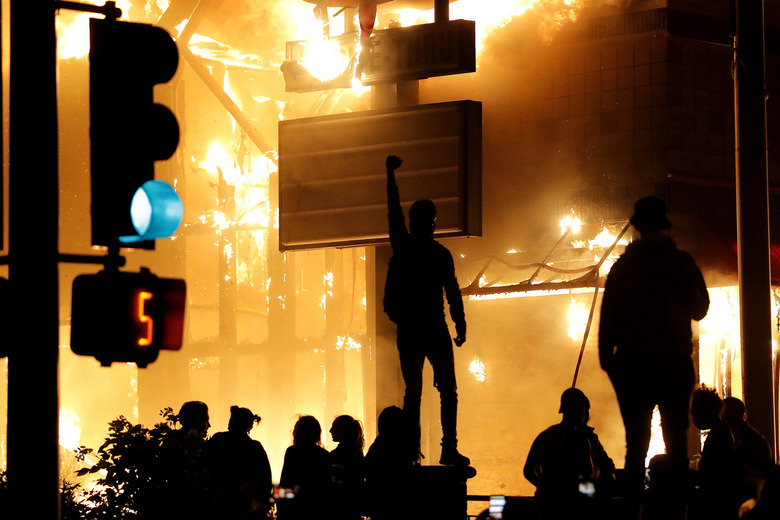Minnesota Is Now Using Contact Tracing To Track Protestors, As Demonstrations Escalate
- Minnesota protests are continuing to escalate and inspire similar demonstrations around the country in the wake of police killing an unarmed Minneapolis man this week named George Floyd.
- Minnesota officials say they're using contact tracing to better understand who the protestors are and where they're coming from.
- Contact tracing has previously been used as part of a comprehensive coronavirus response.
As the Minnesota protests have spilled across the country, fueled by protestors angered over the police killing of an unarmed Minneapolis man named George Floyd, the protests have morphed into marches and demonstrations that have turned violent everywhere from New York City to Los Angeles. Curfews are being imposed in major cities around the US at the time of this writing, and at least eight states, as well as the District of Columbia, have requested the National Guard to assist local law enforcement.
In some cities like Minneapolis, though, officials are starting to turn to a familiar tool to investigate networks of protestors. The tool is contact-tracing, and it's a familiar tool in that people have been hearing about it frequently in recent weeks as an important component of a comprehensive coronavirus pandemic response. According to Minnesota Public Safety Commissioner John Harringon, officials there have been using what they describe, without going into much detail, as contact-tracing in order to build out a picture of protestor affiliations — a process that officials in the state say has led them to conclude that much of the protest activity there is being fueled by people from outside coming in.
In fact, Minnesota's Gov. Tim Walz told reporters that as much as 80% of those being destructive are from outside Minnesota.
Setting aside whether or not that's true, the non-protest aspect to this is the fact that it speaks to privacy concerns around contact-tracing in general, since using this tool to fight the coronavirus pandemic is by definition an invasion of privacy. Contact tracers need to know personal details about you, such as who you've been around and where you've gone over a not-insignificant period of time. And now, it's a tool that's apparently being used to build a completely different, non-coronavirus-related informational picture of Americans.
And what makes this even more interesting is the fact that a CNN analysis of Minneapolis data found what appears to be the complete opposite of the assertion about out-of-towners. Per CNN, "More than 80% of people booked into jail in Minneapolis on riot and other potentially riot-related charges over the past two days are from Minnesota, according to a CNN analysis of data from the Hennepin County Sheriff's office. Officials had earlier claimed that most protesters came from out of state."
Meanwhile, the situation in cities around the country is continuing to deteriorate, as protests multiply and escalate. Among the most recent developments as of the time of this writing:
- The National Guard has been called up to help protect the White House from protestors.
- More than two dozen cities in 16 states have implemented curfews. One of those, Chicago, has imposed a curfew starting at 9 p.m. and ending at 6 a.m. that officials say will be in place nightly "until further notice."
- Minnesota's governor has said he's expecting the state to see a spike in coronavirus cases as a result of the crowds protesting.
Already some early clashes between police and protesters in Seattle. pic.twitter.com/IlvIH2EOVT
— Mike Baker (@ByMikeBaker) May 30, 2020
Unbelievable. This is scary. #nyc #protests https://t.co/91VnLHjiWi
— Kelli Stretesky #RightsMatter #StopCorruption (@KelliStretesky) May 31, 2020
Nearly a dozen #lapd cruisers damaged and destroyed by protesters on 3rd near Fairfax.
A bus also destroyed. pic.twitter.com/JAGI4uQ20n— Leanne Suter (@abc7leanne) May 31, 2020
Rioters just found an AR-15 in an abandoned police car and a hero immidiately pulled his gun and disarmed him.
CRAZY https://t.co/efzLTcFDXf
— Caleb Hull (@CalebJHull) May 31, 2020
